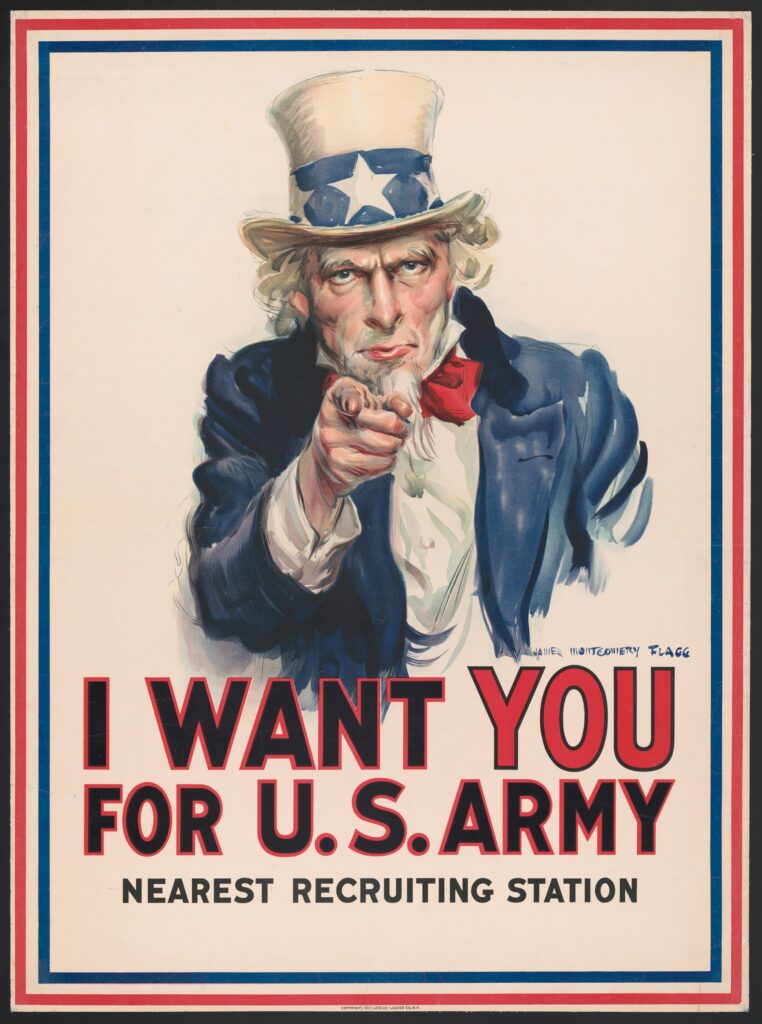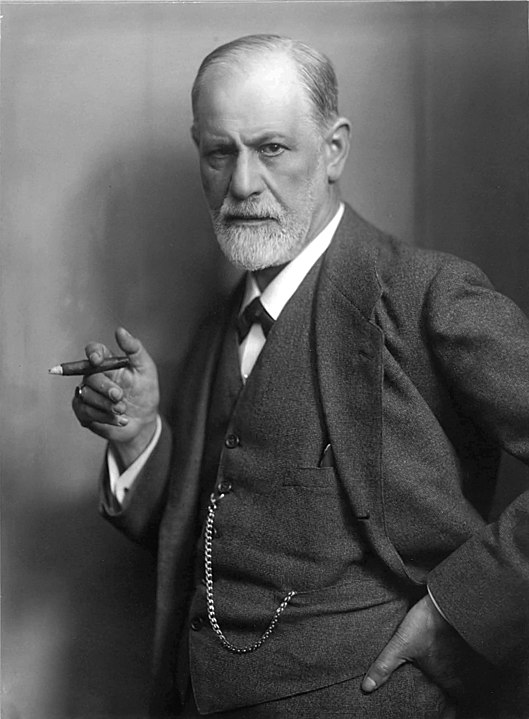Edward Bernays knew something about manipulating the masses.
The ideas of his uncle Freud helped him gain an understanding of group psychology.
He put this knowledge at the service of companies or politicians to control and manipulate the masses.
Among his powerful clients were President Calvin Coolidge, Procter & Gamble, CBS, the American Tobacco Company, and General Electric.
I think the best way to introduce Edward Bernays is a quote from his book Propaganda:
“The conscious and intelligent manipulation of the organized habits and opinions of the masses is an important element in democratic society. Those who manipulate this unseen mechanism of society constitute an invisible government which is the true ruling power of our country.
We are governed, our minds are molded, our tastes formed, our ideas suggested, largely by men we have never heard of. This is a logical result of the way in which our democratic society is organized. Vast numbers of human beings must cooperate in this manner if they are to live together as a smoothly functioning society.
…In almost every act of our daily lives, whether in the sphere of politics or business, in our social conduct or our ethical thinking, we are dominated by the relatively small number of persons…who understand the mental processes and social patterns of the masses. It is they who pull the wires which control the public mind.”
Freud’s Ideas
Edward Bernays benefited greatly of the ideas of his uncle.
One of Freud’s fundamental ideas is that we have, deep inside our mind, hidden sexual and aggressive forces.
When these forces are unleashed, they bring chaos. So they need to stay under control.
In the 20s, after the chaos of World War I, Freud began to write about group behavior.
He noticed that it’s easier to target the unconscious mind of human beings when they are in crowds.
In Group Psychology and The Analysis of the Ego, Freud wrote:
“A group is extraordinarily credulous and open to influence, it has no critical faculty, and the improbable does not exist for it.”
As I mentioned in my previous article Cracking the Code of the Inner World, Freud sees human beings as monsters of desires that society civilized afterward.
He argued that civilizations had been constructed to control the animal and devastating forces in human beings.
Something such as individual freedom under a democratic system is simply impossible.
If we allow human beings to express all their desires, it will lead to destruction. Therefore, the masses must be kept under control.
Why the masses in particular? Because the mind and the behavior of an individual change under the influence of the group.
Manipulation and Group Psychology

Group psychology tries to understand the behavior, thoughts, and emotions of individuals when they are part of a group.
Gustave Le Bon (1841-1931), a French social psychologist, is often seen as the father of the study of crowd psychology.
For him, once an individual is part of a crowd, his psychological state changes:
“He is no longer himself, but has become an automaton who has ceased to be guided by his will.”
This is a fundamental idea that Bernays will use later:
“The group has mental characteristics distinct from those of the individual, and is motivated by impulses and emotions which cannot be explained on the basis of what we know of individual psychology. So the question naturally arose: If we understand the mechanism and motives of the group mind, is it not possible to control and regiment the masses according to our will without their knowing it?” [Propaganda]
The crowd is more than a physical aggregation, it’s a state of mind. Thus, we can be affected by the psychology of a group without being physically present.
Once we identify ourselves as part of a group, we let go of our critical introspection and discernment.
It is easier then to bypass the rational mind of an individual to target the hidden desires of the unconscious mind.
The few who know how to do it can move the masses in the direction they want.
Nice Stories to Know About Bernays
Bacon and Eggs
How Edward Bernays changed the eating habits of millions of Americans?
In the 1920s, Bernays was approached by a company that wanted to increase consumer demand for bacon.
Before that year, Americans used to have a light breakfast made of coffee and a roll.
Bernays turned to his agency’s internal doctor and asked him whether a heavier breakfast might be better for people’s health.
So Bernays asked him if he can write to 5000 doctor friends to see if they agree.
4500 doctors said they did.
Now Bernays has a nice story to pitch the newspaper:
“4,500 physicians urge Americans to eat heavy breakfasts to improve their health”.
From here, all he has to do now is to suggest bacon and eggs as the perfect breakfast. And that’s it.
The demand for bacon did increase. Bacon and eggs became the typical American breakfast.
Bernays highlighted a problem and established his solution using the authority of thousands of influencers.
Breaking the Taboo Against Women Smoking
George Hill, the President of the American Tobacco corporation, wasn’t happy about the social taboo against women smoking in public.
He complained to Bernays that the Tobacco industry is losing half of the market. He charged him then to find a way to break it.
Bernays consulted a psychoanalyst, Dr. Brill, to find out what cigarettes mean to women.
Dr. Brill told him that cigarettes were a symbol of male power. If someone could connect cigarettes with the idea of challenging male power, then women would smoke.
Keeping this in mind, Bernays will orchestrate his master plan.
Every year, New York held an Easter day parade to which thousands come.
In 1929 Bernays decided to pay a group of good-looking suffragettes to smoke.
At his signal, the women should join the parade and light up their cigarettes.
His own photographers were there ready to capture the moment to publish around the world.
Before that, he told the press that a group of women was preparing to protest by lighting up what they call the torches of freedom!
The news went viral. From that moment, the rate of smoking among women went up.
Fluoridation of Water
Water fluoridation remains a controversial public health measure.
How something classified as a pollutant ended up in public drinking water supplies?
Fluoride is an unwanted byproduct of aluminum. The ALCOA (the Aluminum Company of America) wanted to find a way to get rid of the stock.
In the mid-1940s, based on some dentists’ findings, the ALCOA campaigned to convince people that water fluoridation prevents tooth decay in children.
Edward Bernays participated in the campaign.
He used the same method that he did with bacon and eggs:
“You can get practically any idea accepted if doctors are in favour. The public is willing to accept it because a doctor is an authority to most people, regardless of how much he knows or doesn’t know.”
Before Bernays’ campaign, fluoride was largely known as an ingredient in rat poison; after the campaign, it was considered a safe provider of healthy teeth!
Bernays and the Birth of a Profession

Edward Bernays is considered the father of public relations.
His rise began with World War I.
America entered the war against Germany and Austria.
Bernays’ job was to promote American ideals in the press. The United States was fighting to bring democracy to all of Europe.
President Woodrow Wilson invited Bernays to accompany him to the peace conference in Paris.
When he saw how the masses were celebrating President Wilson, Bernays wondered: is it possible to create the same type of persuasion in peacetime?
At its origin, the word propaganda simply meant the propagation of the faith.
After World War I, the word had a bad connotation. It became associated with lies, half-truths, and tricks.
Knowing that, Bernays had to find a new term to establish propaganda in peacetime.
He became then a public relations counselor. It was the first time this term was used.
Bernays knew from his uncle Freud about the hidden irrational forces inside human beings.
To serve corporations, all he had to do is to link their products to the emotional desires of the people. This way, he can trigger irrational behaviors.
Going back to the cigarette case, smoking didn’t free women. Not to mention that women didn’t need smoking to be free.
What smoking did is providing a feeling of independence.
This is how manipulation works: I give a false solution to a real problem.
The Culture Shift
The strength of Bernays was to give corporations access to the unconscious mind of the people.
With mass production, that was the perfect timing for his skills.
Corporations feared that consumers will stop buying.
Fortunately, Bernays showed them how to make people want things they didn’t need.
Before him, products were sold based on need. We buy something for its practical value.
After him, the American citizen was slowly transformed into a consumer.
Paul Mazer of Lehman Brothers clearly expressed the need for this cultural shift:
“We must shift America from needs to desire culture. People need to be trained to desire, to want new things even before the old have been entirely consumed. We must shape a new mentality in America. Man’s desires must overshadow his needs.”
Bernays’ job was to create the new type of customer.
The techniques he developed to promote mass-consumptions are still in use today:
-Linking products to famous film stars
-Placing products in movies
-Selling cars as symbols of male sexuality
-Employing psychologists to issue reports that praise certain products and then pretended they were independent studies
-Paying celebrities to repeat the message that you don’t buy things just for need but to express your inner self to others.
The Consuming Self

After World War I, Freud became even more pessimistic about human nature.
He said that he underestimated the dangerous forces inside human beings.
There’s this idea that humans can’t be trusted to make decisions on a rational basis. The core principle of mass democracy was wrong.
Walter Lippmann, one of the most influential political thinkers and journalists of his time, repeated a similar idea.
The mass mind uses unreason, irrationality, and animality. Therefore, the masses need to be kept under control.
Bernays presented himself as having the solution.
By stimulating people’s inner desires with consumer products, not only do we make the economy work, but also, we keep the masses happy and docile. This is how we can ensure a stable society.
For Bernays, turning citizens into moving happiness machines is a task similar to engineering.
He called it the engineering of consent. He explained it this way:
“Professionally, [public relations] activities are planned and executed by trained practitioners in accordance with scientific principles, based on the findings of social scientists. Their dispassionate approach and methods may be likened to those of the engineering professions which stem from the physical sciences.”
In Bernays’ mind, democracy maintains the relations of power, not gives power back to people.
The Two views of Human Beings
Are human beings rational or irrational?
Roosevelt, Bernays, and the Nazis had different answers.
For Roosevelt, human beings were rational and could be trusted to take an active part in the political process.
The system of opinion polling was based on this idea. Therefore, there’s no need for controlling the masses.
Bernays didn’t view it this way. Human beings are at the mercy of unconscious forces, and they need to be kept on leash.
It is the businesses, and not the politicians, who can save democracy by responding to the deepest desires of people.
This way, we can transform a potentially dangerous citizen into a passive consumer.
The Nazis also viewed human beings as irrational creatures.
Democracy for them was dangerous because it gives power to the individual without the means to control it.
Joseph Goebbels, the Minister of Propaganda, said that one of his inspirations was the writings of Edward Bernays.
Goebbels’ strategy was to use the unconscious forces to bind the nation together.
It was about creating a unity of thinking and feeling.
For both Goebbels and Bernays, it was the desires of the people that were in charge. They just had different ways to channel them.
Final Thoughts
This article was inspired by the excellent documentary The Century of the Self.
I highly recommend watching at least the first part.
It gives a good idea of how group psychology is used.
Moreover, it’s still relevant to today’s world.
Manipulation techniques don’t concern only America. We can witness them all over the world.
That’s why it’s important to know about group psychology to protect ourselves from manipulators.
Article posted the 25 July 2021
Popular Articles
- Blindness: From the Invisible Gorilla to the Quranic Perspective
- Muslims’ Unity: A Powerful Solution That Takes Its Time
- The Certainties of Muslims in Uncertain World
- Mongols Invasions: Some Forgotten Lessons to Today’s Muslims
- How to Enjoy Salat and Make it Meaningful
- The Future of Education: Better, Shorter, Cheaper?
- A Few Thoughts For Muslims
- The Blue Economy or How to Make Change Appealing
- Muslims Judging Each Other: Why and How to Be Less Judgy
- The Obstacles to Reading Books and How to Overcome them



